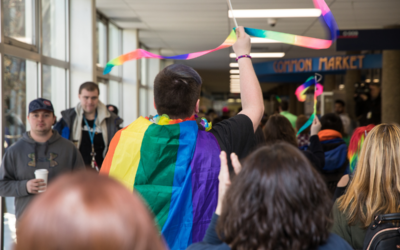Social media, in modern society, feels like a necessary evil. It’s rare to find someone who has a healthy relationship with it, and rarer to find someone who doesn’t use it all. We’ve never been more interconnected than we are now. At any point, I can reach out to family in Nova Scotia and the message will immediately be sent. Judging from their schedule, I could receive a reply just as instantaneously. Despite being so connected, I get a sense that we couldn’t be further apart.
A paper released last year by Felix Hussenoeder suggests that social media’s effects on us are inconsistent at best – studies focusing on the negative effects often avoid the positive effects, while studies focusing on the positive effects ignore the negative ones. They contend that a stronger relationship exists between mental effort and gratification. Hussenoeder breaks social media users into four categories:
- “Lucky ones” are people who have little mental effort invested in social media but receive high gratification.
- “Socialites” are people who invest a high amount of mental effort and receive a high amount of gratification.
- “Bystanders” are people with low levels of mental effort invested and receive a low level of gratification.
- “Sufferers” are people who invest high levels of mental effort but receive very low levels of gratification.
I think this is a good way to categorize social media use; it captures the wide spectrum of users and recognizes the highs and lows of their usage. The biggest takeaway for me from this short paper was this:
It is 2023, and experts are still trying to find ways to measure the effect of social media. If that doesn’t give you pause, frankly, it should.
Generation Alpha is the first generation to have full access to social media from birth. But I don’t think we can fully understand social media’s impact on individuals from this generation yet. While increased disinformation and radicalization on a societal level is clear, what social media is doing to youth on an individual level is not. Especially as time moves on, social media usage is only rising amongst younger and younger kids. A 2023 survey from Media in Canada reports that seven of 10 children in their research group use social media, with 82 per cent of teens in that group using it daily. In the same study, 53 per cent of teens favour TikTok, but this percentage is only going to increase. I’d argue that in the next few years, most people will fall into Hussenoeder’s category of Sufferers, as we become more and more attached to social media and in turn, more and more disconnected from reality.
Clearly my viewpoint leans towards pessimistic prediction, but I’m sure optimists would argue that it’s not all bad. We have never been more connected thanks to social media. A grandma can easily see her grandkids grow up while not even living in the same country. Just as easily, that same grandma can proudly share all the photos of her family with her circle. I have a hard time feeling pessimistic about that–so thanks, social media.
But a word of caution: pick the social media you use the most to keep up with your friends and family. Find someone you don’t talk to regularly, or better yet, pick someone you haven’t talked to in over a year. Message them and ask them to meet up in any capacity. If they flake–or worse, ghost–then maybe you don’t know that person anymore. Maybe they are nothing more than a post, a picture, or a video that you scroll past. The odd birthday post, the odd “like,” the odd thumbs up.
If you’re not able to leave it at that, be wary. We’ve opened Pandora’s box; we let everything spill out. Now, we continued to flip it upside down, shake it and see what else could spill out. The more we use these apps, the more we start expecting that gratification Hussenoeder was charting, and the more effort we start putting in. But that gratification is going to lessen, and we are going to find ourselves in the sufferer category–we’ll be trapped in a hell of our own making.
Someone once told me that once you leave high school, the only time you’ll hear about your former classmates is when they get married, have children, or die. Whichever comes first will probably be the last time you hear about them. That was 10 years ago, and this person was speaking about their life experience from the past 20 years. In 2024, you’ll still see those events throughout your feed. It might even be easier to find that information. Except now, it’ll be surrounded by memes, a picture of a cute dog, a preteen doing a viral dance and a celebrity singing some god awful song. A post in a sea of posts, all vying for your fleeting attention, and all of it meaning nothing to you anymore.






